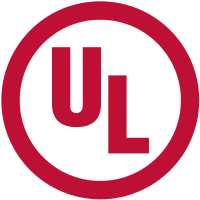Hazard Analysis and Critical Control Points (HACCP) Certification
UL offers Hazard Analysis and Critical Control Points (HACCP) certification to brand and retail supply chains to help prevent product contamination and reduce production risks. HACCP is a scientific, risk-based approach intended to decrease health hazards by identifying and controlling the critical points of a food safety management system. The HACCP model is appropriate for use across the entire supply cycle, from harvesting of raw materials to production processes, product distribution and consumption. Compliance with HACCP is mandatory across much of the global market for manufacturers of meat and poultry, seafood and juice products. Other companies, including manufacturers of dietary supplements, cosmetics, and pharmaceuticals, may voluntarily utilize the HACCP approach to mitigate safety risks. Definition HACCP is a systematic approach primarily used to assess food safety that may also be utilized to gauge the safety of other products, such as dietary supplements, pharmaceuticals and cosmetics. UL HACCP assessments for certification are conducted through the analysis and control of biological, chemical and physical hazards from raw material production through the distribution of a finished product. Benefits Whether HACCP is voluntary or mandatory for a supplier’s industry, UL’s safety expertise can help businesses reduce product recalls and protect brand value and consumer safety. HACCP has seven primary principles: Hazard analysis Identify critical control points Establish critical limits Establish monitoring procedures Establish corrective actions Establish record-keeping procedures Establish verification procedures Additionally, through UL’s management system services, we further support customers in their drive to minimize production hazards, improve quality systems, and promote focus on consumer and product safety processes and practices.Visit the UL International (UK) Ltd website for more information on Hazard Analysis and Critical Control Points (HACCP) Certification






